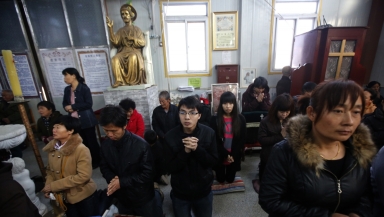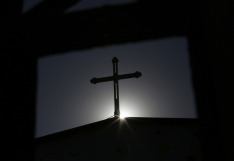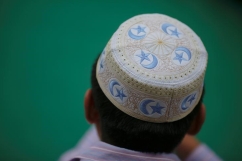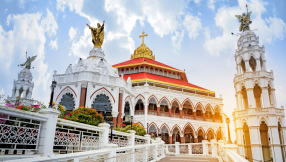Religious freedom violations in China have once more been thrust into the public eye after 60 Chinese Christians applied for political asylum in the Czech Republic.

According to Czech newspaper Hospodářské noviny, the Christians – who are from 10 different denominations of the church – say they face persecution in China because of their faith. They represent the largest group of Chinese refugees to have ever sought political asylum in the Czech Republic.
Having arrived between February and May this year, they are now being held in two detention facilities.
Chinese media has cast doubts on the beliefs of the asylum seekers – claiming that they are illegal immigrants using religion as a cover.
According to Hong Soon-do, Beijing correspondent for Asia Today, if the Czech Republic accepts the seekers' claim, "it would be a big blow to China who already faces criticism from Western countries including the United States over its human rights issues".
The Czech Republic has only granted asylum to six Chinese citizens in the past five years, and has since improved relations with Beijing. Offering asylum to the latest claimants would mean risking increased tensions once more.
Radio Prague reports that Martin Rozumek, director of Aid to Refugees, told Hospodářské noviny that he does not expect the applicants to be successful.
Whether the asylum seekers have a valid claim or not, Christians in China are facing increased restrictions. Under President Xi Jinping's rule the government has introduced a hard-line approach to various parts of civil society, including religion.
Xi has called on China to return to traditional beliefs, such as Confucianism, rather than 'Western' religions and the Communist Party is believed to be becoming progressively more suspicious of the influence of Christianity in particular, though Muslims, too, are suffering.
With more than 1,500 churches having had their crosses removed or demolished in Zhejiang province alone, there's no doubt that Christianity is being targeted by Xi's regime.
As John Allen Jr reports for Catholic website Crux, it is "revealing that they [the aslym seekers] chose Christianity as their rationale for requesting asylum. It suggests that when many Chinese think 'persecution' these days, they think of the country's rapidly growing Christian minority."















